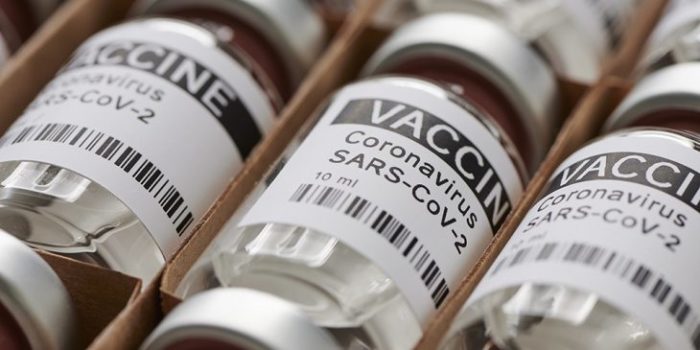Vaccine Rollout Expected To Accelerate
The rollout of COVID-19 vaccines has been painfully slow in Massachusetts and elsewhere, but medical experts expect things to ramp up in coming weeks.
President Joe Biden, who was sworn into office on Wednesday, has made it a top priority to accelerate vaccine distribution, pledging to administer at least 100 million doses in the first 100 days of his administration.
Biden tapped former Food and Drug Administration head David Kessler to oversee the effort.
Dr. Paul Biddinger, chief of Massachusetts General Hospital's Division of Emergency Preparedness, said he expects the pace of the rollout to pick up steam.
"Clearly the new administration is committed to supporting states and local health departments in getting the vaccines administered as quickly as possible, which is welcome news," Biddinger said in an interview. "The biggest concern remains the availability, and it's not clear when that will change."
So far, two vaccines have been approved for emergency use, one developed by Pfizer and another made by Cambridge-based Moderna. Both vaccines require two doses.
At least two more vaccines await FDA emergency authorization — one produced by AstraZeneca, another by Johnson & Johnson.
Biddinger said approvals of those drugs could substantially boost the federal government's supply chain.
"The hope is that Johnson & Johnson has substantial manufacturing capability and may be able to ramp up quickly," he said.
Biddinger, who leads the state's COVID-19 advisory committee, said the Baker administration has expanded the number of venues where people can get vaccinated when more drugs are available — including Gillette Stadium and Fenway Park — which will also accelerate the process.
In Massachusetts, about 4% of the population had received one vaccine dose through Jan. 19, according to the U.S. Centers for Disease Control and Prevention.
New Hampshire has administered at least one dose of vaccine to about 4.7% of its population, according to the federal agency.
Health care workers, residents of nursing homes and first-responders are among the first to begin receiving vaccines, along with people with pre-existing conditions.
Vaccines won't be available to the general public until April, according to the state's rollout plans.
Nationwide, about 4.8% of the U.S. population had received at least one dose of the vaccine through Jan. 19, up from 2.8% a week ago.
Roughly 15.7 million shots have been administered of 31.2 million that have been distributed. About 2 million people have received both doses of Pfizer vaccine.
Medical experts say the U.S. needs to vaccinate upward of 250 million people to reach "herd immunity" where enough people have developed a resistance to the disease that will allow states to lift COVID-19 restrictions.
States have been frustrated with the slow rollout of vaccines under the Trump administration, with many receiving less than what they requested from the federal stockpile.
"Until now, the states have had almost had no idea, week to week, how much vaccine will be arriving," Biddinger said. "That has made it very difficult for hospitals and clinics to know how much they will be getting, which makes it hard to schedule vaccinations."
Christian M. Wade covers the Massachusetts Statehouse for The Salem News and its sister newspapers and websites. Email him at cwade@cnhi.com.
___
(c)2021 The Eagle-Tribune (North Andover, Mass.)
Visit The Eagle-Tribune (North Andover, Mass.) at www.eagletribune.com
Distributed by Tribune Content Agency, LLC.





Division, challenges await new speaker Jason Wentworth. But he's not stressed about it
Survey: Few Americans Could Pay A Surprise $1,000 Bill From Savings
Advisor News
- Americans fear running out of money more than death
- Caregiving affects ‘sandwich generation’s’ retirement plans
- Why financial consciousness is the key to long-term clarity
- Selling long-term-care insurance in a group setting
- How to overcome the fear of calling prospects
More Advisor NewsAnnuity News
Health/Employee Benefits News
- Low-income diabetes patients more likely to be uninsured
- UnitedHealth execs bemoan ‘unusual and unacceptable’ Q1 financials
- LTCi proves its value beyond peace of mind
- Governor signs ban on drug middlemen owning pharmacies
- The lighter side of The News: Political theater; A bone to pick with a Yankee; Health insurers have mascots?
More Health/Employee Benefits NewsLife Insurance News
- Americans fear running out of money more than death
- NAIFA eyes tax reform, retirement issues in 2025
- Legislation would change tax treatment of life insurers’ debt investments
- Closing the life insurance coverage gap by investing in education
- IUL sales: How to overcome ‘it’s too complicated’
More Life Insurance News